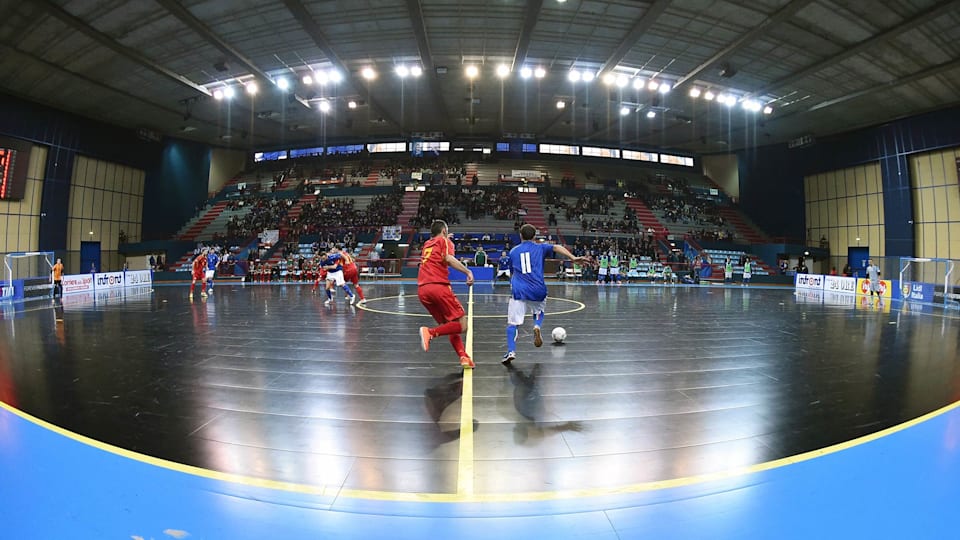
The great indoors
Futsal is an exciting, small-sided football game that is mostly played indoors. It was originally developed in Montevideo, Uruguay, in 1930, when a local coach grew tired of cancelling matches and training sessions due to rain-soaked pitches and so created a version of football that could be played in smaller indoor sports halls with only five players per side. Around the same time, similar games were also being played on the streets of Brazil, where a shortage of playing pitches and a lack of space in crowded cities saw football-mad youngsters favouring smaller-sided games wherever they could play them.
What’s in a name?
The game was originally known as “fútbol sala” in Spanish and “futebol de salão” in Portuguese, literally meaning indoor football, but when the game was recognised by FIFA in 1989 it became known as “futsal”, combining the Spanish words for “football” (fútbol) and “hall” (sala).
A global game
The first international futsal competition was held in 1965, and the game has grown rapidly around the world since then, with FIFA estimating that around 30 million people now play futsal globally. The first FIFA Futsal World Cup was held in 1989 and has since featured 47 different countries, with Brazil winning five of the eight tournaments. The current reigning men’s champions, however, are Buenos Aires 2018 host nation Argentina, which should guarantee plenty of support for the futsal events during next year’s YOG!
Smaller game, bigger action
The nature of this game places a large emphasis on technical ability and agility, and is consequently an excellent breeding ground for football skills that can be translated into the 11-a-side format of the game. The surface, ball and rules create an emphasis on improvisation, creativity and technique as well as ball control and passing in small spaces, leading to a fast-paced game full of excitement and liveliness. While football usually features 11 players per side, futsal teams have five. But it is not just the teams that are smaller – the pitch is also only about a third of the size of those used for outdoor football, measuring around 20m x 40m, which makes it roughly the same size as a handball court. The matches are also much shorter, consisting of two periods of 20 minutes. The ball itself is heavier than traditional footballs and has far less bounce.
Kicking off legendary careers
Many of the world’s best football players grew up playing futsal, with the limited space and constant opponent pressure helping to improve their ball control skills and technique. Among those to have started out playing futsal was Argentinian football legend Lionel Messi. “As a little boy in Argentina, I played futsal on the streets and for my club. It was tremendous fun, and it really helped me become who I am today,” says the Olympic gold medallist and five-time World Player of the Year. Other stars of the game who have hailed futsal’s role in their careers are Cristiano Ronaldo, Xavi, Andrés Iniesta and another Olympic champion, Neymar.
